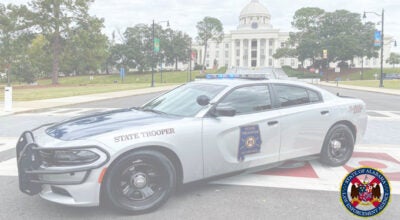Local parolees could utilize new reporting centers
Published 6:10 pm Thursday, March 5, 2020
|
Getting your Trinity Audio player ready...
|
The Alabama Bureau of Pardons and Paroles, in an effort to expand rehabilitation services for parolees and probationers, will open three new Day Reporting Centers, Director Charlie Graddick announced Thursday.
The centers, which are designed to help local former inmates transition back into their communities, will open in the Wiregrass, Baldwin County and Anniston in next 12 to 14 months, Judge Graddick said.
“The Day Reporting Centers provide easy access for parolees and probationers to classes in rehabilitation programs and social work services, and they give our officers an effective way to provide close supervision of these men and women as they complete the requirements of their release from confinement,” Judge Graddick said. “These centers work.”
Director of Communications Terry Abbott said it’s possible that Covington County parolees can benefit from the new centers.
“That would be dependent on the location of the facility and transportation availability,” he said. “ There is not a residential component associated with this site at this time but we will serve any offender ordered if the transportation to the facility can be resolved.”
Day Reporting Centers (DRCs) are vital in providing probationers and parolees the tools and resources they need to prevent and reduce recidivism. The DRCs provide more intensive supervision of participants, who have access to a variety of services such as cognitive behavioral therapy, intensive drug treatment counseling and adult education services.
A DRC can serve up to 150 former inmates with programs right there in the communities where they live. Currently, the Bureau has DRCs in Birmingham, Huntsville, Mobile, Montgomery and Tuscaloosa.
Judge Graddick said the Bureau will open a DRC in the Wiregrass at a location to be determined and one somewhere in Anniston. In Baldwin County, the Bureau will convert the existing DRC Lite program into a full-fledged DRC at a different location. A DRC Lite usually serves 25-30 clients.
DRCs not only help provide an improved future for participants, they also benefit communities. Families are restored, recidivism falls, and public safety is improved.
On any given day, the Alabama Bureau of Pardons and Paroles actively supervises more than 27,000 offenders.



